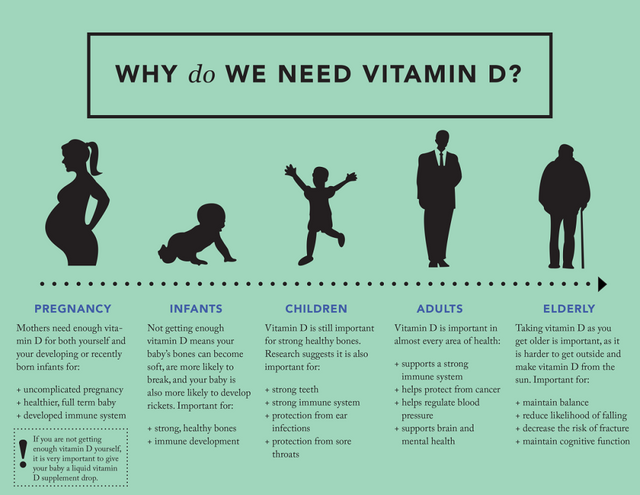Why Sunlight Is Important For Us - And How Lighting Affects Our Health!

Light is all around us - and mostly, we are taking it for granted and don't realize how much it can affect us!
There are several aspects to this - the biggest difference is obviously the one between natural daylight and artificial lighting.
So let's explore the connection between light and the human body - and how it affects our health, mood and behaviour!
1: Natural Light and Vitamin D
Especially in the morning, natural night is very important: It stops the production of Melatonin (our "sleepy" hormone) and at the same time boosts our Serotonin levels (the happy hormone!)
So an early morning workout outside, a walk in the park or riding a bike to work would be the perfect opportunity to make you awake and start the day feeling great.
And don't worry if you're not living in a hot climate: even when the sun's not out, cloudy weather still offers more benefits than artificial light.
While artificial lights can only achieve between 100 and 1000 Lux, daylight can actually be around 5000 on cloudy winter days or as bright as 100.000 in the sun!

The most important part of sunlight for humans is Vitamin D.
Vitamin D is actually not a real vitamin, because we can produce it ourselves inside our skin, if we get enough sunlight.
And how much is "enough"?
Scientists suggest that about 20% of our body (for example face, hands and forearms) should be exposed to sunlight regularly.
If we don't get enough Vitamin D though, it can increase the risk for cardiovascular diseases, metabolic diseases and infections, as well as hinder our bone structure and even increase the chance of getting cancer.
While the connection from a lack of Vitamin D and cancer cannot be found with every type of cancer, it's been specifically proven with bowel cancer. Researchers suggest that there is also a connection to breast cancer and prostate cancer, but the results weren't as significant.

The body can actually store Vitamin D for several weeks or months, but during the wintertime more than half of the population in a cool climate area experiences a Vitamin D deficit.
So what can you do to boost your Vitamin D levels anyway?
Yes there are certain ways, but most probably they won't be as effective as direkt sunshine.
What helps are fatty kinds of fish like mackarel or salmon - this is also the reason why eskimos can survive months without a lot of sunshine.
And of course, there are also many supplements on the market that improve your vitamin D levels.

2: Artificial Lighting
But artificial lighting can also have effects on our body and health - positive and negative!
When blue lights hits our eyes, the melatonin productions stops and instead the activating cortisol is being released.
This blue light emits from almost all electronics - and that's also the reason why looking at electronic screens shortly before bed time may cause you to sleep worse or less.
That's because Melatonin is controlling our sleep cycles, and too much artificial light in the evening can confuse that natural balance. This can even lead to depression and a higher risk for tumors!

The color of the light around us can actually have a much bigger impact than we think!
Studies have proven that yellow light allowed students to calm down easier, bright blue light improved their reading abilities while cold blue light has a beneficial effect on dementia patients and red lights seems to relax hyperactive children.
Conclusion
Sunlight is important for our health! It affects our well-being, skin, immune system and more.
So always make sure to get enough daylight - even if you don't live in a hot climate, the Vitamin D still gets through the clouds.
Artificial lighting on the other hand can have both positive and negative effects on the body. Blue light can manipulate our sleep cycles and therefore keep us up at night.


© Sirwinchester
It has been shown that outdoor workers do NOT get more skin cancer than other people.
One theory is that they are outside in the early morning sun -- which has more of the red hues and wavelengths. Full of red light, by the time the heavy UV rays come out between 10:00-3:00, the outdoor workers are able to absorb the beneficial aspects of UV rays (vitamin D and more), but the protective red light shields them from the harmful aspects.
Compare that to indoor workers who fill their bodies with too much blue light from their screens, flickering fluorescent lights that cause the jitters, put on sunscreen and sunglasses that block those same beneficial lights, and have windows in their cars, homes and offices with tints or films that block UV rays.
Enjoy the sun - it's free! It's healthy!
I have been telling people how good being out in the sun is. That is why I have the pool meetings.
Sweet post! My roommates and I are changing one of our rooms into an office space and lighting is a hot debate now at our house. I prefer natural light, while one roommate likes yellow light and the other white. Does anything come to mind for an artificial medium?
great info thanks to share with steemiens.
I fully agree for sunlight (WITHOUT EXCESS) and vitamin D3.
There is an interesting book about this: written by Andreas Moritz: "HEAL YOURSELF WITH SUNLIGHT" explaining how much we need the sun and vitD3.
Thank for sharing. I upvoted and invite you to visit my web about how to supplement your food...
Valuable information, thanks for sharing.
I would like to add following information about Vitamin D:
The D3 is much closer to the type of vitamin D that our skin produces when exposed to the sun. The D3 form is much more efficient than the D2, and has a much longer active lifetime in our body.If you take supplements, always choose the D3 type.
the most powerfull source of energy, the sun!
Too bad there isn't a lot of sun in the Netherlands...😅
There actually was last week, but now.. :(
Great post! I am originally from New York and have lived in Austin, Texas now for four years. Back in New York, I discovered that I was Vitamin D deficient and this did not please me. However, moving here was one of the best decisions I ever made because we get plenty of sun year round, and I know the damage that lack of vitamin D can have on the body. So many of those who live in northern climes are unaware of this. Thanks for sharing this informative post as I am sure will help many more!
Good post..